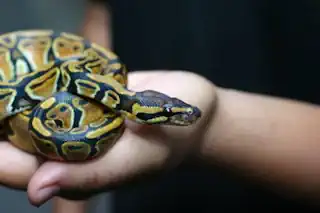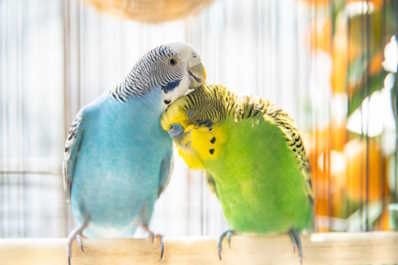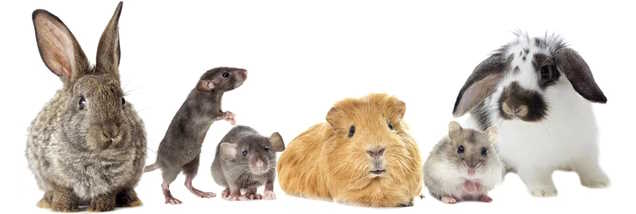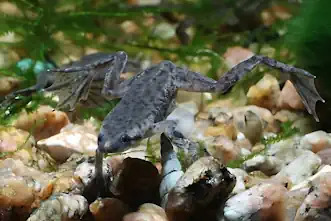Identifying Foods Harmful to Ferrets: A Guide for Pet Owners
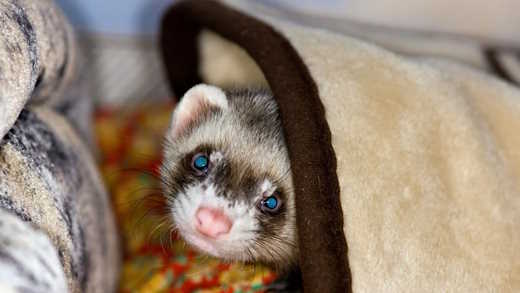
Owning a ferret isn’t just about cuddles and playtime; it’s a love story that centers on the well-being of these unique, carnivorous creatures. When it comes to nurturing your ferret, nothing is more critical than their diet. Get it right, and you’ll have a perky, playful pal. Get it wrong, and you’re looking at a bevy of health issues. This post is your beacon to the culinary world of ferrets, highlighting what not to serve on a silver platter.
Understanding Ferret Dietary Needs
Ferrets are not the type to nibble at your table scraps; they need meat – specifically, a diet rich in proteins and fats. A ferret’s digestive system is crafted for meat absorption, making it quite intolerant to fibrous and carbohydrate-rich foods. However, there are common misconceptions floating around that mislead many owners on what to feed ferrets.
Oh and don’t forget your ferret needs lots of fresh water. This is often done with water bottles but be sure to change the water frequently. In the wild a ferret’s water supply is always fresh. Letting their water get old will impact the ferret diet as much as them eating the wrong foods.
Ferret Food – The Protein & Fat Rule
The ferret digestive system was built for them to eat meat. Proteins should make up around 65% of the diet and fat around 35%. Anything less can lead to malnourishment, while excessive amounts can lead to obesity and potentially life-threatening health issues.
Feeding on the Wild Side
Think of what ferrets eat in the wild; they’re hunters. That means their diet incorporates whole prey – meat, bones, organs, and sometimes, even a bit of fur or feathers. This blend is the benchmark for a ferret’s dietary requirements.
Foods Harmful to Ferrets
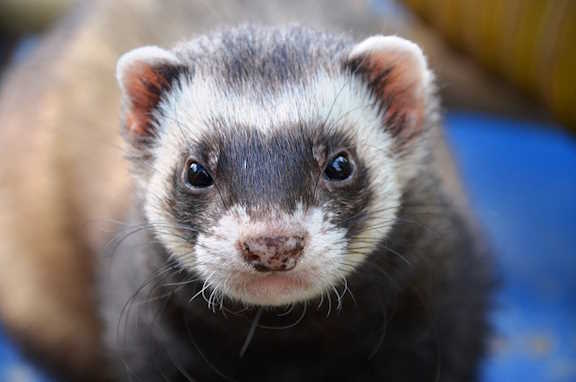
The danger lies not just in what they shouldn’t eat but understanding why some foods are toxic or harmful to them. Here’s a rundown of what to keep out of reach of your furry friend.
The ‘No Go’ List – Toxic Foods for Ferrets
Ferrets are like tiny family members who rely on us to choose their meals wisely. Here’s what NOT to put into their little feeding bowls:
Chocolate: Just like with dogs, chocolate is a big no for ferrets. It contains theobromine, which can be toxic to them.
Grapes and Raisins: These common snacks can cause kidney failure in ferrets, similar to their effects on dogs. Sugary foods are definitely bad for a ferrets diet.
Onions and Garlic: These kitchen staples can lead to blood disorders in ferrets due to their sulfoxide content.
Dairy Products: Ferrets lack the enzyme required to digest dairy products, making milk and its derivatives a cause for digestive upset.
Xylitol: Found in many sugar-free products, xylitol can cause a deadly drop in a ferret’s blood sugar levels.
Caffeine: Beverages like coffee, tea, and soda can be highly dangerous, causing rapid heart rate and potentially fatal conditions.
Avocado: It’s toxic for most pets, including ferrets, due to a substance called persin.
Raw Eggs: Feeding raw eggs to ferrets can lead to biotin deficiency, affecting their coat and overall health.
Key Risks of Offering the Wrong Foods to Your Ferret

Feeding your ferret the wrong diet can have several unintended consequences. Here’s a list of dangers that could arise from improper feeding:
Digestive Distress: Ferrets have specific dietary needs, and deviating from these can lead to upset stomachs, diarrhea, or worse digestive tract issues. Dog food, cat food, kitten food, puppy food all contain the wrong nutrients for the ferret’s digestive tract.
Malnutrition: Lack of the right nutrients, particularly proteins and fats from animal sources, can result in weight loss, weakness, and stunted growth.
Obesity: Conversely, too much of certain nutrients, or feeding high-calorie foods not suited for their metabolic rate, can lead to obesity, further stressing their small frames and organs.
Insulinoma: This is a form of cancer that ferrets are particularly prone to, exacerbated by feeding them sugar and high-carbohydrate foods.
Dental Problems: Foods not meant for ferrets can lead to dental decay and diseases, affecting their overall health and well-being.
Behavioral Issues: An improper diet can not only affect the physical health of ferrets but also lead to behavioral changes due to discomfort or poor nutrition.
Shortened Lifespan: Ultimately, the wrong dietary choices can significantly shorten a ferret’s life, depriving them of the full, vibrant life they deserve.
By staying informed and vigilant about your ferret’s diet, you not only ensure their happiness but also fortify their health against potential risks.
Healthy Ferret Food Alternatives
Balancing your ferret’s diet is an artful harmony of providing the right foods in the correct proportions. Here are some ideal food options that form a nutritional bulwark for your ferret.
Eggcellent Choices
Eggs are a fantastic source of protein and fat. Give them boiled eggs to prevent any messy floors or scrambled bellies.
The Meat of the Matter

High-quality fresh meat like turkey, chicken, or lamb are the backbone of a ferret’s menu. Check for bones and any seasonings before offering them to your pet. Cooked meat or raw meat will provide the meat protein or animal protein your ferret needs.
Play with Prey
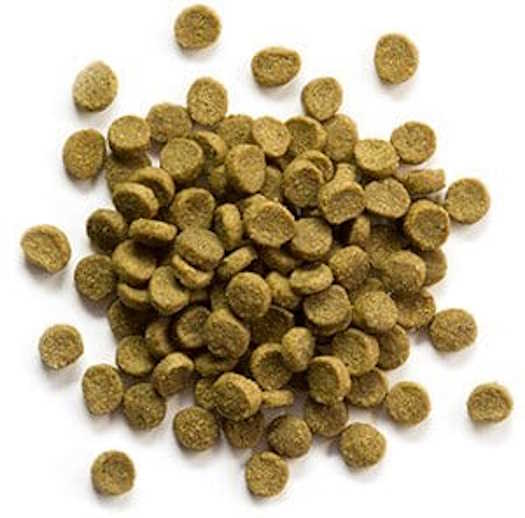
Commercial ferret diets that mimic whole prey are convenient and usually quite reliable, but always read the ingredients to ensure they meet the protein and fat percentage requirements.
Preventing Diet-Related Health Issues
A balanced diet not only means a healthier, happier ferret but also a fatter wallet (from fewer vet bills). Keep an eye on these signs that could indicate your pet isn’t eating well.
Watch the Weight
While a ferret’s weight can fluctuate, significant changes could signal a diet problem.
Lethargy or Lack of Appetite
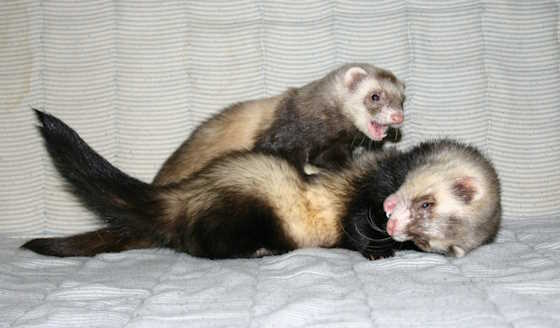
If your ferret is uninterested in food or play, it might be time for a dietary inspection. They need meat based protein to support their energy requirements. They have a very high metabolic rate and like other species with a high metabolic rate, when they slow down they are not feeling good.
Unusual Stool
Consistency and color can often be the first sign of digestive distress. Keep tabs on what’s left in the litter box.
The Importance of Veterinary Guidance
Your vet is your partner in keeping your ferret healthy. Regular checkups where diet and health are discussed can prevent many issues arising from diet.
Proactive vs. Reactive Approach
Waiting for a health issue to develop before changing the diet is like closing the stable door after the horse has bolted. A proactive stance is always recommended.
Conclusion
Feeding your ferret the right diet is a promise of longevity and quality of life. It’s not just about avoiding the mistakes but about actively crafting a diet that nourishes your pet the way nature intended. Remember, every morsel they eat is a step towards their wellness, so make those steps count.
If you’re a ferret owner or planning on becoming one, go hug your little weasel and feel good about understating how to keep them healthy and lively. This is your silent pact with your pet – a commitment to the best ferret lifestyle possible through their diet. Happy ferreting!
Frequently Asked Questions (FAQs)
Can ferrets have any fruits or vegetables?
Ferrets are obligate carnivores, which means the ferret diet should primarily consist of meat. Fruits and vegetables can cause digestive issues and are not recommended.
How often should I feed my ferret?
Ferrets have fast metabolisms and should be fed small, frequent meals throughout the day, ideally two to four small meals.
What should I do if my ferret accidentally eats something toxic?
If your ferret consumes any toxic food, it’s crucial to contact your veterinarian immediately for guidance.
Can ferrets eat dog food or cat food?
Ferrets have different dietary needs than dogs or cats. Therefore, it’s important to feed them food specifically formulated for ferrets nutritional needs. Cat foods are often higher in protein than dog food but are still insufficient for the ferret and can lead to poor growth and body weight issues.
Can ferrets have cooked bones?
While ferrets are carnivores that benefit from the nutrients found in bones, it’s important to only provide them with raw bones. Cooked bones can splinter easily and pose a choking hazard or cause internal injuries. Instead, give your ferret raw bones from chicken or turkey as an occasional treat, which can also help with dental health by providing a natural way to clean their teeth. Always supervise your ferret when they’re enjoying this carnivorous delight to ensure they’re safe.
How can I tell if my ferret is getting the right nutrients?
Regular check-ups with your veterinarian can help ensure your ferret is receiving a balanced diet. Additionally, monitoring your ferret’s energy levels, coat health, and weight can provide clues about their nutritional status.
Is it better to give my ferret dry or wet food?
Ferrets usually do well on a high-quality dry ferret food, as it’s good for their dental health. However, incorporating wet food or raw meat can provide variety and additional hydration. Feed your ferret, especially baby ferrets, little meals and observe what they like and don’t like.
How can I prevent my ferret from becoming overweight?
Monitor their food intake, provide a balanced diet without high-calorie treats, and ensure they have plenty of opportunities for exercise.
By keeping these FAQs in mind, you can help maintain your ferret’s health and happiness for years to come. Remember, when in doubt, consulting with a veterinarian familiar with ferret care is always the best course of action.
